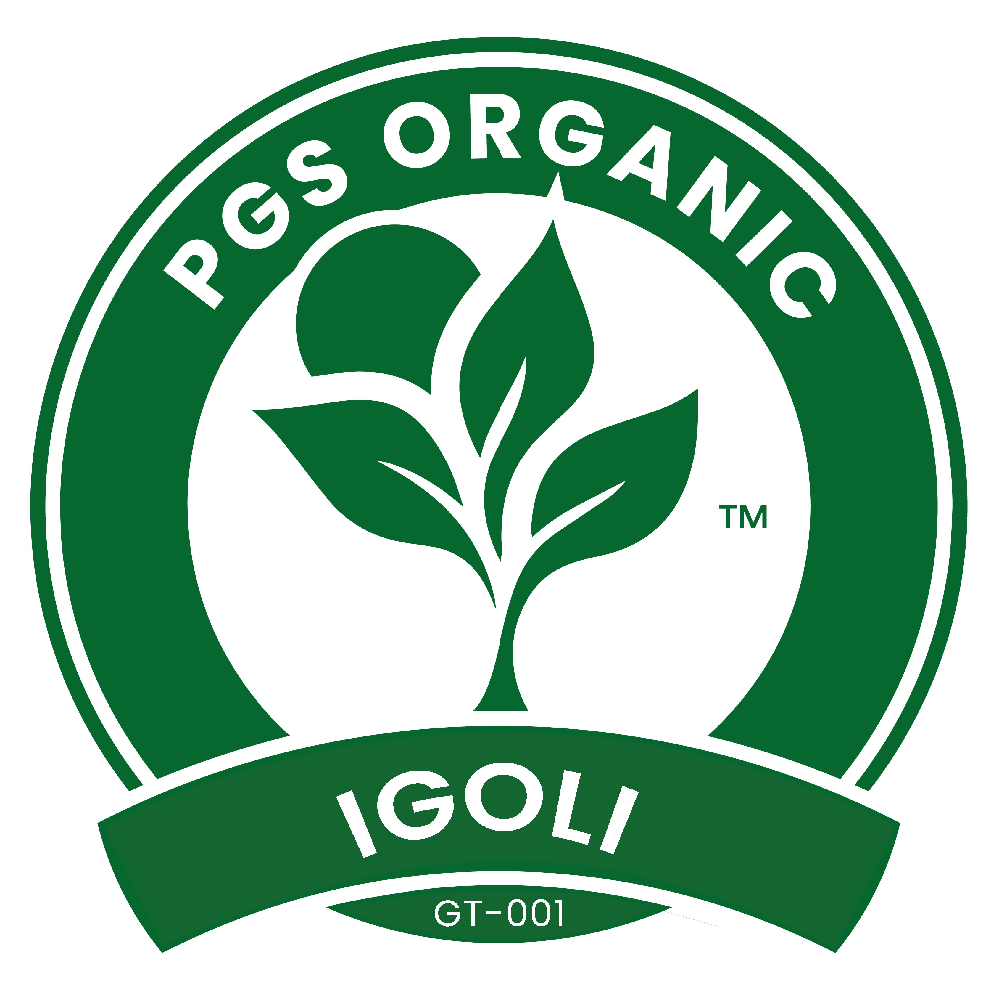PGS
What is PGS?
PGS (Participatory Guarantee System) is a simple and trustworthy way for small farmers to certify their produce as organic. It relies on a community-based approach where farmers, consumers, and experts work together to ensure sustainable and chemical-free farming practices. Farmers regularly inspect each other's farms, share knowledge, and ensure organic standards are met. This system helps keep certification affordable while ensuring you get healthy, eco-friendly products directly from farmers you can trust.
Certification

PGS Organic In-Conversion
This designation is awarded to farmers transitioning from conventional to organic farming or those unable to verify their land’s organic history. It indicates that the farm is adhering to organic practices, though the land has not yet completed the full organic certification period. The timelines for in-conversion status include:
- At least 18 months under organic management before sowing or planting annual crops.
- At least 12 months before grazing or harvesting pastures and meadows.
- At least 12 months before harvesting other perennial crops.
PGS Organic

This certification is awarded to farmers who fully comply with their group’s selected internationally recognized organic standard.
For animal products, labeling laws require that the term “organic” be linked to specific protocols registered with the Department of Agriculture, Land Reform, and Rural Development (DALRRD). These protocols are covered by the IFOAM-endorsed SAOSO standard.
Since South Africa lacks formal legislation regulating the use of “organic” for crops, compliance is guided by the Consumer Protection Act of 2008. Farmers must provide documented proof through farm visit records and adherence to their group’s chosen organic standards.
In cases where minor non-compliance is identified, exceptions may be granted for up to 12 months if the farmer submits a corrective action plan. Progress is evaluated during the next farm visit to determine if the necessary improvements have been made or if further extensions are justified.
Why PGS Matters
PGS (Participatory Guarantee System) is more than just a certification—it's a powerful way for small farming communities to grow together, support each other, and share their commitment to healthier, more sustainable food. Here's why it makes a difference:
- Affordable Organic Certification: PGS offers farmers a simple, low-cost way to certify their produce as organic, making it easier for them to farm sustainably without the high fees of traditional certification systems.
- Community of Practice: Being part of PGS means farmers join a network where they learn from each other, share resources, and get help with things like managing their harvests, keeping records, and finding new markets for their produce.
- Stronger Farming Connections: PGS brings farmers together, creating a sense of trust and collaboration. It sparks a movement of small farms working towards cleaner, earth-friendly farming practices—building a healthier future for both their communities and the planet.
Driving Systemic Change
PGS is about more than farming—it’s about regenerating soils, preserving biodiversity, and bringing South Africa’s food system closer to the people. By strengthening local food networks, PGS helps ensure:
Healthier soils and ecosystems, contributing to long-term sustainability.
Resilient farming communities that can navigate market challenges and opportunities.
The preservation of biodiversity and cleaner, healthier production systems for the seventh generation to come.
Innovation in Action
iGoli PGS embodies the transformative potential of PGS through its innovative approaches, including:
Accessing Alternative Markets: Collaborations with organic retailers like Jacksons and Farm Table, as well as box schemes like Munching Mongoose, bring fresh, locally-grown produce to Gauteng’s residents.
Aggregating into Hubs: Farmers unite to form aggregation hubs across Gauteng, streamlining operations and reducing environmental impact.
Piloting School Feeding Schemes: The group is pioneering school feeding programs that integrate locally-produced organic food, fostering healthier futures for children.
.png)